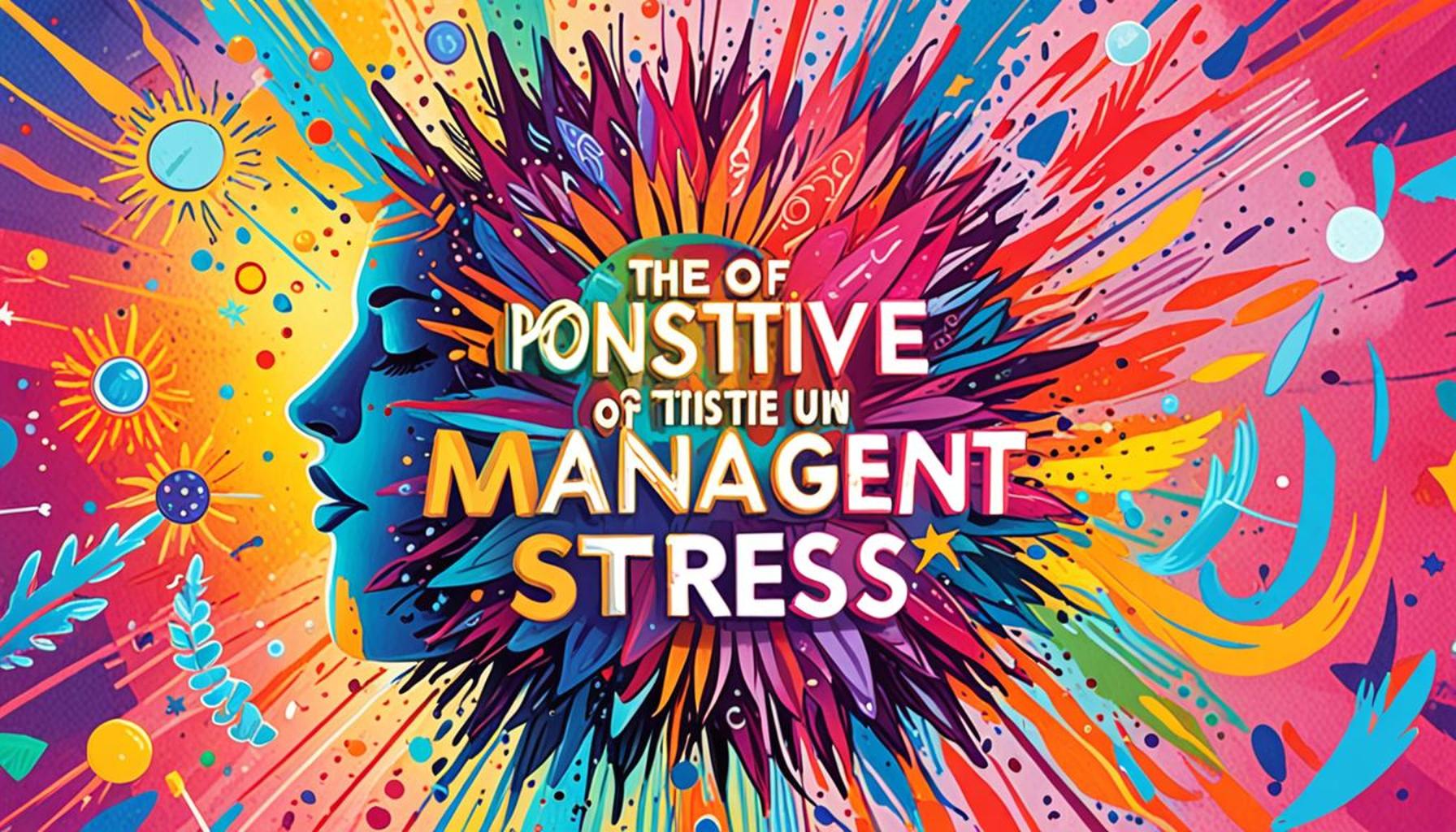The Impact of Positive Affirmations on Stress Management: Strengthening Resilience in Times of Pressure

The Power of Positive Affirmations
In a society where the demands of daily life can often feel overwhelming, finding effective strategies to manage stress is crucial. For many Nigerians, from the bustling markets of Aba to the vibrant streets of Abuja, the practice of positive affirmations has emerged as a powerful tool for promoting mental well-being. These simple yet potent statements, when repeated regularly, can reshape our internal dialogue and contribute significantly to stress management.
Enhancing Self-Esteem
Enhancing self-esteem is one of the most significant benefits of using positive affirmations. In the context of Nigeria’s diverse culture, where individual achievements are often compared to those of others, many people struggle with feelings of inadequacy. By affirming their strengths and acknowledging their capabilities, individuals can cultivate a healthier self-image. For example, a university student in Lagos battling academic pressure might use affirmations like “I am capable of achieving my goals” to boost confidence before exams.
Reducing Anxiety
The high level of uncertainty in today’s world can trigger anxiety, which often exacerbates stress. Positive affirmations can play a vital role in reducing anxiety by countering self-doubt and negative thoughts. For instance, a small business owner in Nigeria may face challenges due to economic fluctuations. By incorporating affirmations such as “I trust in my ability to overcome challenges,” they can maintain a more positive outlook, equipping them to handle pressure more effectively.
Improving Focus
In a land rich with distractions, the ability to maintain focus is invaluable. Positive affirmations can aid in improving focus and clarity. Regular practice of these affirmations can sharpen one’s concentration, making it easier to navigate daily tasks or complex decision-making scenarios. Consider a working professional in Port Harcourt who starts each day by affirming, “I have clear vision and purpose.” This small ritual can enhance clarity, enabling them to tackle workplace projects with a renewed sense of determination.
Research reinforces the idea that a positive mindset can transform our response to stressors. A study conducted at the University of Lagos found a direct correlation between positive self-affirmation and decreased stress-related symptoms, emphasizing that by nurturing positive thoughts, individuals can foster resilience. Furthermore, affirmations can serve as a routine practice that integrates seamlessly into one’s lifestyle, requiring just a few moments each day.

In contemplating the incorporation of positive affirmations into daily life, the potential benefits extend far beyond stress management. This practice can equip individuals with a stronger, more resilient mindset. By intentionally employing positive self-talk, Nigerians can better navigate life’s challenges, emerge stronger, and contribute positively to their communities.
Curious about how to effectively implement these affirmations in your daily routine? Stay tuned for tips and techniques that could prove transformative on your journey toward enhanced stress resilience and improved mental health.
SEE ALSO: Click here to read another article
The Role of Positive Affirmations in Psychological Resilience
As we dive deeper into the intricacies of stress management, it becomes evident that positive affirmations are more than mere phrases; they are pivotal in fostering psychological resilience. For many individuals in Nigeria, where cultural and socio-economic pressures can compound stress, the act of verbalizing supportive statements can serve as a crucial lifeline. These affirmations work by creating a mental framework that pivots focus from negativity to self-empowerment, gradually laying the foundation for more resilient mental health.
Changing Negative Thought Patterns
One of the core functions of positive affirmations is their ability to change negative thought patterns. Many Nigerians encounter daily challenges that lead to feelings of helplessness and anxiety. This can stem from economic hardships, societal expectations, or even personal relationships. Repeatedly vocalizing affirmations such as “I am in control of my thoughts and emotions” serves to counteract the overwhelming sense of despair. A committed practice of these affirmations can gradually rewire the mind, enabling individuals to replace pessimistic thoughts with optimistic ones.
Building Emotional Support Systems
Building emotional support systems through positive affirmations extends beyond the individual; it resonates within the community. For instance, leadership roles in local organizations can utilize affirmations to foster a more supportive network among their members. A community leader in Kano might initiate weekly meetings where participants share affirmations like “We are united, strong, and capable of thriving together.” This collective reinforcement not only enhances individual morale but strengthens communal ties, creating an environment where support is readily accessible.
The Science Behind Affirmations
Research provides substantial backing for the efficacy of positive affirmations in reducing stress and enhancing resilience. According to psychology experts, engaging in positive self-affirmation activates the brain’s reward centers, invoking feelings of motivation and positivity. A study by the Nigerian Psychological Association revealed that individuals practicing positive affirmations reported a significant decrease in stress levels and an increase in life satisfaction over a six-month period. This highlights the potential impact that such simple statements can manifest when approached consistently and earnestly.
Practical Applications
Integrating positive affirmations into daily life can be straightforward. Here are some practical applications that individuals can adopt:
- Start the day with five minutes of positive affirmations, focusing on personal strengths and goals.
- Keep a journal dedicated to affirmations, allowing for reflection on personal growth and achievements.
- Incorporate affirmations into meditation or breathing exercises to enhance their calming effects.
- Join or create a group where members can share affirmations, fostering collective motivation and support.
Ultimately, the journey toward effective stress management is multifaceted, but positive affirmations offer a constructive pathway. By empowering individuals and communities alike, these affirmations have the potential to alter the narrative from one of stress to one of resilience and growth.
Positive affirmations, often overlooked in traditional stress management techniques, have garnered increasing attention due to their potential to transform mental resilience in high-pressure scenarios. These affirmations serve not only as motivational statements but also as powerful cognitive tools designed to reshape our thought patterns. By consistently repeating positive affirmations, individuals can actively challenge and reframe negative thoughts that contribute to stress, ultimately fostering a more constructive mindset.In the realm of mental health, affirmations are particularly beneficial as they can serve to enhance self-esteem and self-worth. For instance, individuals who suffer from anxiety may find solace in affirmations such as “I am capable of overcoming challenges” or “I can manage my stress effectively“. This practice is rooted in the understanding that what we tell ourselves significantly influences our emotional state and behavior. Moreover, research indicates that the integration of positive affirmations into daily routines can create a sense of empowerment and agency. They allow individuals to step into their power during times of uncertainty, reinforcing the belief that they have the resources to navigate stress. This approach not only improves mood but is also instrumental in building long-term resilience. As individuals strengthen their ability to cope with pressure, they become more adept at managing their responses, leading to improved performance and mental clarity in their personal and professional lives.Ultimately, while positive affirmations alone may not be a panacea for all stress-related issues, they represent a vital component in a broader strategy for enhancing well-being. By embracing this simple yet effective practice, individuals can cultivate a mindset that not only approaches stress with confidence but also embraces growth and resilience amid life’s inevitable challenges.
LEARN MORE: This related article may interest you
Implementing Positive Affirmations in Daily Routines
The journey toward enhanced stress management through positive affirmations necessitates intentional implementation in our everyday lives. For many in Nigeria, where stress can often feel astronomical due to economic and sociopolitical factors, the consistent practice of affirmations can be a vital tool for maintaining emotional balance and fostering resilience. Finding innovative ways to weave affirmations into daily routines not only bolsters mental fortitude but also enriches the overall quality of life.
Affirmations in the Workplace
Workplaces can often be environments rife with stress, with deadlines, targets, and personal expectations weighing heavily on employees. For Nigerians navigating the complexities of both local and global work pressures, integrating positive affirmations can lead to a marked improvement in morale and productivity. A Lagos-based tech startup, for instance, might incorporate affirmations into their morning meetings, encouraging team members to voice statements like, “Our innovations positively impact lives,” or “I am capable of overcoming workplace challenges.” Such collective affirmations can foster a sense of shared purpose and enhance teamwork, ultimately reducing stress levels.
Role of Technology in Affirmation Practices
As digital technology increasingly permeates daily life, it also offers unique opportunities for affirmations to become an integral part of stress management strategies. Mobile applications dedicated to mindfulness often include features for tracking personal affirmations. In Nigeria, apps that focus on mental well-being can serve as valuable resources for users seeking to embed positivity into their routines. By setting daily notifications to receive affirmation reminders, individuals can cultivate a habit of positive thinking, essentially ensuring that their mindset remains aligned with growth and resilience, even in challenging times.
Utilizing Cultural Narratives
The rich tapestry of Nigerian culture provides a profound backdrop for positive affirmations that resonate deeply with individuals. Stories that emphasize resilience, strength, and community can be transformed into affirmations that not only inspire personal growth but also pay homage to cultural roots. For example, a popular saying might evolve into an affirmation such as, “I embody the strength of my ancestors” or “Together, we rise above challenges.” Utilizing familiar cultural narratives as affirmations can bridge personal and community identities, thus elevating the strength of the practice.
The Impact of Group Affirmations on Stress Reduction
There is a growing recognition of the power of group dynamics in enhancing the effects of positive affirmations. In many Nigerian communities, communal gatherings and group discussions are pivotal for mental support. By participating in group affirmations—whether in local churches, schools, or community centers—participants can amplify their sense of belonging and support. When individuals come together to affirm statements such as “We are stronger together” or “We can tackle challenges as one,” the shared energy can significantly reduce feelings of isolation and stress. A shared commitment to positivity creates a ripple effect that extends beyond the group to influence broader community resilience.
Affirmations have the power not only to transform individual mindsets but also to weave a supportive fabric within communities. Recognizing their potential allows individuals and groups in Nigeria to actively combat stress and foster resilience in the face of adversity. As this practice gains traction, the collective shift toward positivity could pave the way for profound changes in mental health and well-being across the nation.
SEE ALSO: Click here to read another article
Conclusion
In summation, the practice of positive affirmations emerges as a significant strategy for stress management, offering a pathway to strengthen resilience in the midst of pressure, particularly in the Nigerian context. As we have explored, incorporating affirmations into various aspects of daily life—from the workplace to the heart of community gatherings—serves not only to fortify the individual spirit but also to foster a collective sense of well-being. By embracing affirmations that resonate culturally and personally, Nigerians can engage in a powerful dialogue of positivity that nurtures both mental health and social cohesion.
Furthermore, technological innovations present fresh avenues for maintaining this practice, with mobile apps and digital platforms facilitating a sustainable approach to positive thinking. The potential for group affirmations to amplify the effects of individual statements cannot be overlooked, as shared experiences become invaluable in reinforcing collective resilience. As communities build supportive networks grounded in optimism, the ripple effects of these actions can translate into broader societal changes.
Ultimately, the commitment to positive affirmations is a testament to the strength of the human spirit. As individuals and communities lean into this transformative practice, they cultivate not only the ability to manage stress but also the capacity to thrive amid challenges. This empowers a future where resilience is not simply an aspiration but a lasting foundation in the lives of many, leading to profound improvements in overall mental health and community well-being.



